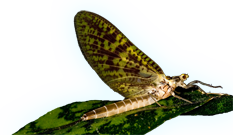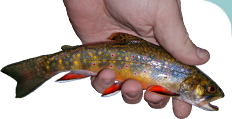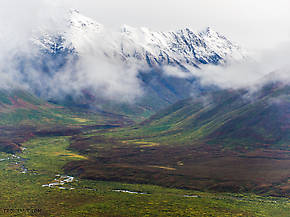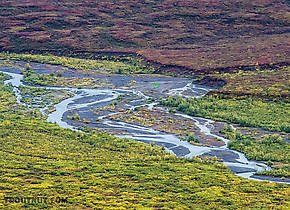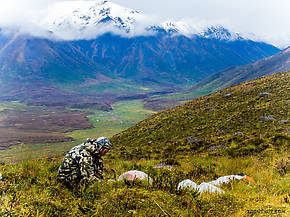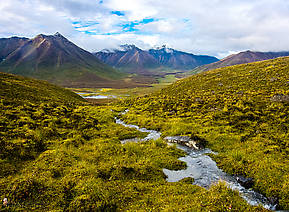I spotted a few caribou cows and calves a mile away where Clearwater Creek braids out into gravel bars. They were slowly moving downstream, and then went mad with fear. Two of them raced downstream while the other sprinted upstream, and behind it was a brown-and-gray-coated wolf! The wolf lagged a few hundred yards behind the caribou as they both ran about half a mile upstream and the caribou disappeared into a gulch formed by tiny Coal Creek. The wolf tracked the caribou to the mouth of the gulch, sniffed around, and gave up.
Soon thereafter, I spotted 8 more cows and calves crossing the creek in braids downstream. Then the rain picked up and I retreated to the tent to write in my journal for a while and hope for the rain to subside. Of course it did not, but this would be the ideal day to bag a caribou so I went hunting anyway. We really needed to float out the next day if we were going to fulfill our plans--including reservations with fishing charters--for the remainder of my dad's visit.
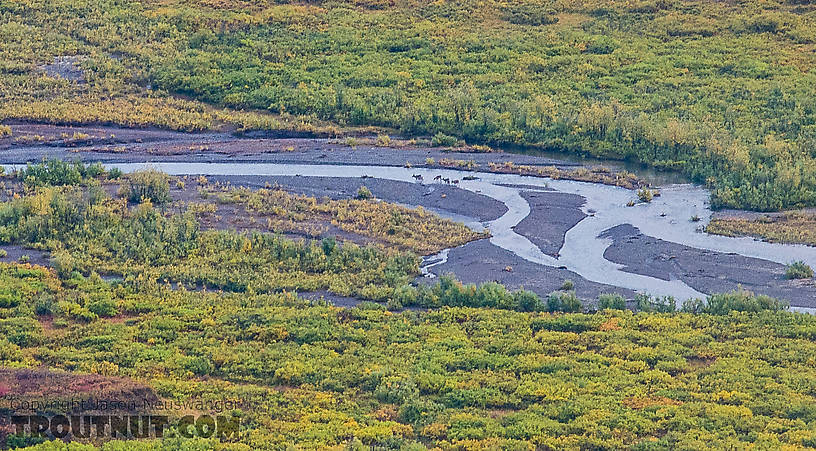
I had scarcely gone ten steps from camp when I came to a big cow caribou and a yearling grazing just a hundred yards below me, beside the tiny creek we walked down the previous day. I had the perfect vantage point for a shot. I quickly weighed my options: I had not seen one mature bull the entire trip out of hundreds of caribou, and here was a big cow right next to camp and a pristine water source to clean the meat.
I backtracked a few paces to rouse dad from his tent and strap the GoPro on his head, and we returned to the overlook. I saw a cow with last year's calf running away spooked high on the next hill 500 yards away. They were surely too far away to be the ones I'd see, I told myself, but as I crept up to my previous vantage point my doubts grew. I couldn't find my caribou. Frustrated and bewildered, I walked forward with less caution, and then the two caribou I was looking for stood up right where they'd been before. Despite all my advantages, I hadn't seen them camouflaged against the wide-open tundra. Now they were spooked. Fortunately, spooked caribou sometimes stand around trying to identify the threat by scent instead of running away at the first sign of danger. I set up my shooting sticks while they stared and tried to guess my identity.
I had to wait a while for a broadside shot at the cow without the yearling behind her, but she finally lined up right at a range around 150 yards. My first shot hit a bit far back, and she stood dazed but did not drop. I shot again and the shooting sticks slipped; no visible impact. The third shot dropped her at 12:30 pm., just a few feet from the creek.
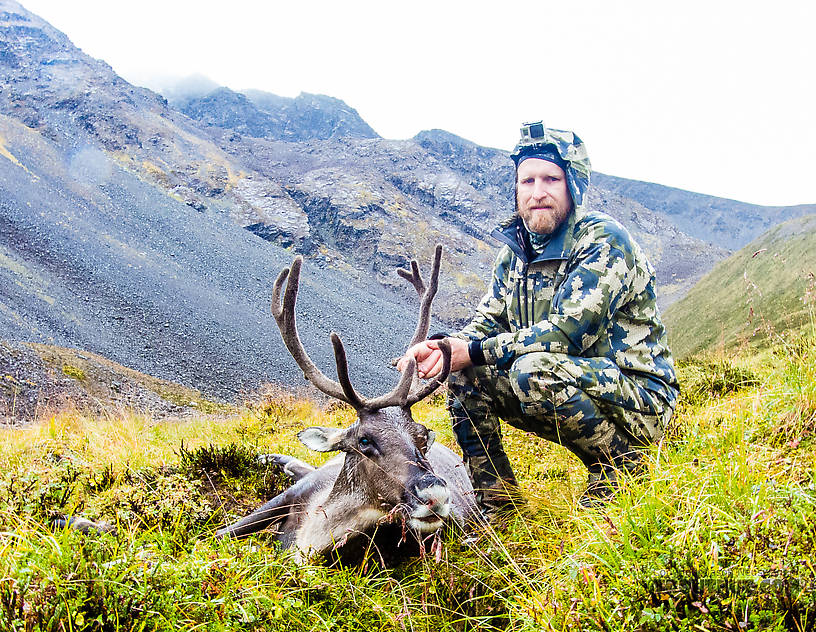
We returned to camp, switched gear, and went down to the kill, which was already being sniffed by a hungry red fox. My dad, a longtime whitetail deer hunter, was amazed at the sheer size of the animal, and perhaps daunted by our plans to transport it. We spent (Spent: The wing position of many aquatic insects when they fall on the water after mating. The wings of both sides lay flat on the water. The word may be used to describe insects with their wings in that position, as well as the position itself.) the next 7 hours quartering and otherwise processing the caribou and meticulously cleaning the meat, spraying every piece with citric acid to discourage bacterial growth. The weather fortunately began to clear up as we worked on the meat. By 8:00 pm we had the whole thing safely in bags and laid out on rocks below camp to cool.
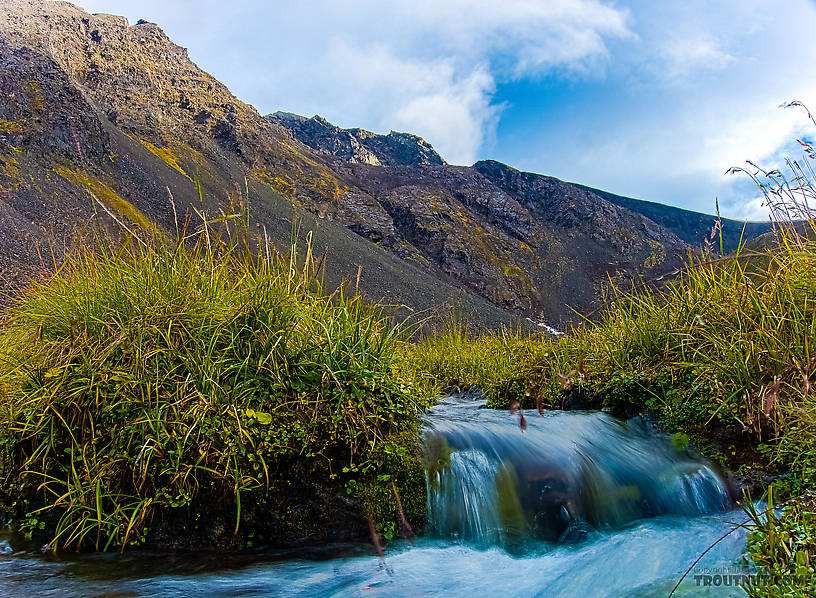
We were happy crawling into sleeping bags in the same camp that night, with meat as good as in the freezer (we thought). A front moved in and raging winds whipped down the mountain, battering our little ridge incessantly. This would cool the meat right down, but it was difficult to sleep. Our Rab Latok Mountain tents held up flawlessly, though, and we both drifted off during gaps in the gale.

